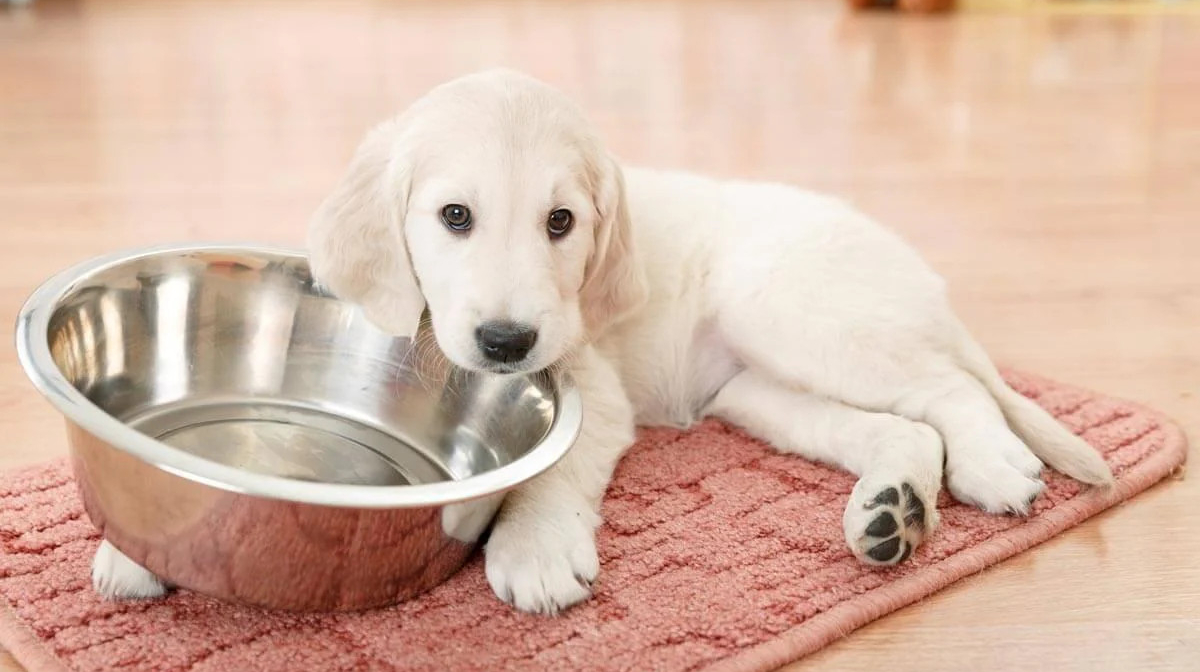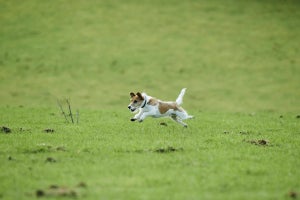
When you first get a puppy, you should be feeding them a high-quality, nutritionally balanced puppy food that will help them grow and develop into healthy adult dogs. However, dogs’ nutritional needs change at each life stage, so at some point you will need to make the transition to a food suitable for older dogs. Read on to learn more about changing puppy food and how to successfully make the move to adult dog food.
When can puppies eat adult dog food?
Once they are weaned off their mother’s milk, puppies should be fed a calorie-rich puppy food containing the right balance of nutrients for healthy growth and development. If puppies are given regular dog food, they may not develop properly.
When your puppy reaches adulthood, you can make the switch to adult dog food. This could be anywhere from around 9 months to 24 months, depending on their size and breed, so always check with a vet first.
Be aware that puppy food has a much higher calorie content than adult dog food, and if you continue to feed your dog puppy food after they have matured, they may quickly gain weight. You should weigh your puppy regularly to check how they measure up against breed guidelines and take them to the vet if you are concerned about their weight.
There are also different levels of essential nutrients in puppy food, which is higher in things like calcium. Continuing to feed an adult dog puppy food could result in adverse health effects, so make sure you change their diet accordingly. When in doubt, always ask a vet for advice.
Changing puppy food
Sudden changes to your puppy’s diet can cause stomach upset, so the transition to adult dog food should be made gradually. You can do this by replacing small portions of their puppy food with the new adult food. Over the course of a week or so, increase the portion of adult food until they are no longer eating any puppy food.
As well as the type of food, you should also start to change the frequency of feeding. Puppies require numerous small meals a day so as not to overburden their small stomachs, but as your dog gets older, they can be reduced.
Types of puppy food
It’s up to you to choose the best puppy food for your dog – you can choose between wet food, dry food, or a mixture of the two. There are also grain free puppy diets available if your dog has special dietary requirements. You can even buy special puppy treats for training or to reward good behaviour – just be sure to portion off no more than 10% of their regular calorie intake to account for treating. Try to stick to the same type of food, as changing brand or type may cause your puppy to become a fussy eater and can also cause digestive issues.
If you notice any adverse reactions in your puppy after eating, such as vomiting or diarrhea, ask a vet for advice.









